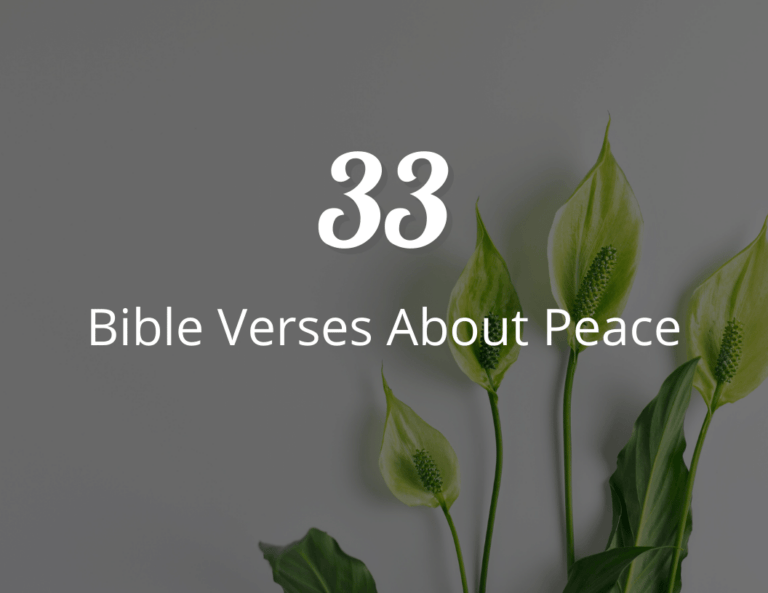Love, peace, and unity are core values of many faith traditions. As such, the Bible is full of passages that reflect these values. In this article, we will explore five bible verses about love peace and unity that can help us become better people.
By understanding the power of love, experiencing true peace, promoting unity among all people, and developing compassion for our fellow man, we can live more meaningful lives in accordance with biblical teachings.
So let’s dive into these bible verses to discover how we can incorporate these values into our own lives!
Understanding Love
You can gain a better understanding of relationships and connection by exploring the core values that bring us together. Love is one of those values, and it’s often found in Bible verses about peace and unity.
In 1 Corinthians 13:4-7, for example, Paul writes about how love is patient and kind; it doesn’t envy or boast; it isn’t arrogant or rude. He emphasizes that love cares deeply and forgives freely—two actions that are essential for peaceful relationships with others.
Not only that, but when we practice these loving behaviors towards our neighbors, we’re ultimately serving God as well. By understanding what love really means—and putting it into action—we can find peace within ourselves and with others around us.
To experience true peace in our lives, however, we must move beyond just understanding love to actively experiencing it.
Experiencing Peace
Through understanding and acceptance, you can find a sense of harmony and serenity. Strengthening your faith in the presence of God can bring peace into your life that surpasses all understanding.
By embracing joy through prayer and meditation, you’ll be able to cultivate a deeper connection with God’s love, which ultimately leads to contentment and inner peace.
As you continue on this journey towards peace, you’ll also take strides towards promoting unity among others who seek it, as well as yourself. This is an important step in finding true unity within yourself and with those around you.
Promoting Unity
By bridging the gaps between people, you can foster a feeling of fellowship and fraternity. This is reflected in the Bible’s teachings on promoting unity.
From Matthew 18:20, which states that “where two or three are gathered in my name, there I am with them” to 2 Corinthians 13:11, which calls for believers to live in harmony with one another; the Bible is full of verses about how we should strive to promote unity.
Fostering harmony means respecting differences and celebrating diversity without judgment or prejudice. Developing compassion towards others is a key part of any effort to promote unity; when we take time to understand each other, it will go a long way in creating an environment of acceptance and understanding.
Developing Compassion
Compassion is essential for creating meaningful connections between people and fostering an environment of acceptance. Cultivating kindness, embracing empathy, and recognizing the struggles of others are all important components in developing compassion. Here are a few tips to help you on your journey:
-
Acknowledge your emotions and those of others. Recognize how our feelings can affect one another.
-
Listen with an open mind. Try to see things from different perspectives.
-
Give without expecting anything in return. Practice selfless giving whenever possible.
-
Offer words of encouragement. Be supportive even when it’s difficult to understand someone else’s situation or perspective.
By actively engaging in these behaviors, we can promote unity through understanding and compassion for each other, no matter our differences.
Frequently Asked Questions
How can I spread love, peace, and unity in my everyday life?
You can spread love, peace, and unity in your everyday life by empowering others, engaging in self-reflection, and always seeking to serve.
Begin by looking around you and asking how you can use your skills to help someone else out. This could include mentoring a young person or helping a neighbor with their daily tasks.
Secondly, reflect on the way you interact with people in your day-to-day life. Ask yourself if there are any areas that need improvement, such as communication or listening skills.
Finally, seek opportunities to actively serve those around you – this could be volunteering at a local organization or simply smiling at strangers as you walk down the street.
By taking small steps each day and utilizing these strategies, together we can create an atmosphere of love, peace, and unity in our communities.
How can I bring more love, peace, and unity into my community?
You can bring more love, peace, and unity into your community by being open-minded, forgiving, and actively serving others.
To start, approach difficult conversations with an open mind and a willingness to understand the perspective of those around you. Seek to find common ground rather than dwell on differences.
Additionally, practice forgiveness when wronged or betrayed. This releases negative emotions that can lead to division and conflict within the community.
Finally, look for ways to serve others without expecting anything in return – whether it’s volunteering at a homeless shelter or helping a neighbor with their garden. By doing so, you create positive energy in the community that helps foster deeper understanding and connection among its citizens.
What are some practical ways to cultivate compassion in my relationships?
You want to create more compassion in your relationships, but don’t know how? You’re not alone!
Practicing empathy and embracing forgiveness are two effective ways to start. Forgiveness is the art of letting go and giving up the resentments you may have from past experiences. It’s about understanding that we all make mistakes, and that it’s possible to move on when those mistakes occur.
Empathy is the ability to understand someone else’s perspective or feelings; it allows us to relate to others even during difficult times. When both of these skills are combined, they can help foster a positive emotional bond between you and your partner.
So next time you feel frustrated with someone, take a step back and try out these techniques – you’ll be surprised at how much difference they can make!
How can my faith help me to have more love, peace, and unity?
Your faith can play an important role in cultivating more love, peace, and unity in your life.
Practicing prayer is one way to draw closer to God and gain a better understanding of His will.
Living humbly helps us to develop the attitude of service that’s necessary for loving our neighbor as ourselves. It also provides a sense of contentment and inner peace.
Engaging with other believers through worship, service projects, or small groups can create a sense of support and community that encourages more loving interactions with each other.
By utilizing these tools from your faith, you can foster greater love, peace, and unity in your relationships.
How can I best apply bible verses about love, peace, and unity to my life?
You can apply bible verses about love, peace, and unity to your life in a meaningful way by understanding the power of emotional healing and spiritual growth. Like a flower blooming in springtime, these verses can help you open up to new possibilities within yourself.
They offer guidance on how to nurture relationships with others, as well as provide an opportunity for self-reflection and insight into your own inner world. By applying these lessons to your everyday life, you’ll be taking steps towards greater emotional health and spiritual growth.
Conclusion
You’ve explored the power of love, peace, and unity. Now it’s time to take action and apply this knowledge in your everyday life.
You have a responsibility to yourself and to your community to cultivate these values and help foster a more compassionate world.
Investigate the truth of this theory: when we practice love, peace, and unity in our lives, we can create lasting positive changes that ripple out into the world around us.
With the right intention and effort, you can make a difference for yourself and others!


